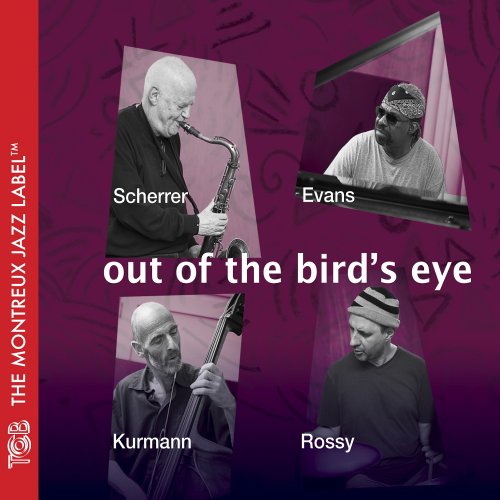Ensemble Organum, Marcel Peres - Missa Gotica: Toulouse, Barcelona, Avignon, Apt (2009)
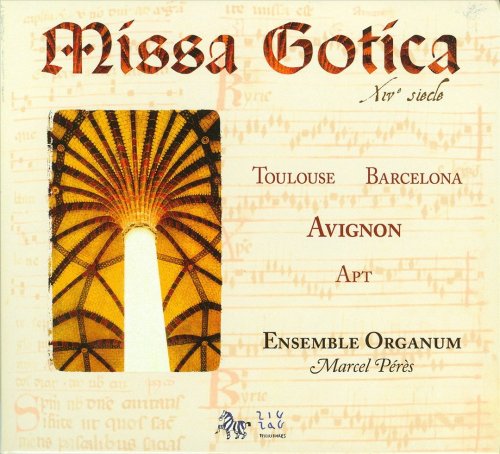
Artist: Ensemble Organum, Marcel Peres
Title: Missa Gotica: Toulouse, Barcelona, Avignon, Apt
Year Of Release: 2009
Label: Zig Zag Territoires
Genre: Classical sacred
Quality: FLAC (image+.cue,log,scans)
Total Time: 50:59
Total Size: 242 MB
WebSite: Album Preview
Title: Missa Gotica: Toulouse, Barcelona, Avignon, Apt
Year Of Release: 2009
Label: Zig Zag Territoires
Genre: Classical sacred
Quality: FLAC (image+.cue,log,scans)
Total Time: 50:59
Total Size: 242 MB
WebSite: Album Preview
Prior to Guillaume de Machaut's Notre Dame Mass, a complete polyphonic setting of the Mass Ordinary in the third quarter of the fourteenth century, inaugurating a tradition that has come down to the present time, various anonymous composers made experimental steps in that direction, creating several related mass movements. This disc by the innovative French group Ensemble Organum is essentially a recording of one of those fragments, the so-called Mass of Toulouse. In order to create a complete "Missa Gotica" (Goths, by the way, may enjoy the booklet's brief exegesis on why the music of the Middle Ages was later termed Gothic), director Marcel Pérès joins the Toulouse fragments to another early mass pair, the Gloria and Credo known together as the Mass of Barcelona. (Both these names refer to the libraries that hold the manuscripts, not to the music's presumably central French point of origin.) The mass is completed with Office chants. The combination of works has the virtue of helping the listener divine what fourteenth century sacred "style" might have been like, for the differences between the Toulouse and Barcelona composers come into sharp relief when their mass sections are heard side by side; the Toulouse mass is more rhythmically oriented and makes much more extensive use of the syncopation device known as hocket. The deliberate, full-throated performances by the Ensemble Organum bring out the hocket effect beautifully and give a sense of the way musicians might have used the vast sonic spaces of the Gothic cathedral. The tempos are on the slow side, and in the chants they are quite dramatically slow, with a good deal of ornamentation (including octave doubling) applied to the chant line by the all-male group of six singers. Pérès apparently believes that the spirit of experiment that animated polyphony in the fourteenth century would also have been applied to chant, and he justifies his unusual way of performing chant (unusual, at least, for those who haven't encountered Pérès before) in a very elegantly written set of booklet notes. It is, at the least, musically convincing. This is a superior medieval sacred release, and in fact a good place for a listener to begin with the rather thorny music of the fourteenth century. Perhaps Pérès can be convinced to take up as well the great monument of fourteenth century secular music, the Roman de Fauvel.
Tracklist:
1. Kyrie
2. Gloria
3. Veni Santa Spiritus (Alleluia) (Plain chant)
4. Credo
5. Préface
6. Sanctus
7. Confirma hoc Deus (Offertoire) (Plain chant)
8. Agnus Dei
9. Spiritus Domini (Introït) (Plain chant)
10. Deo gratias (Ite missa est)
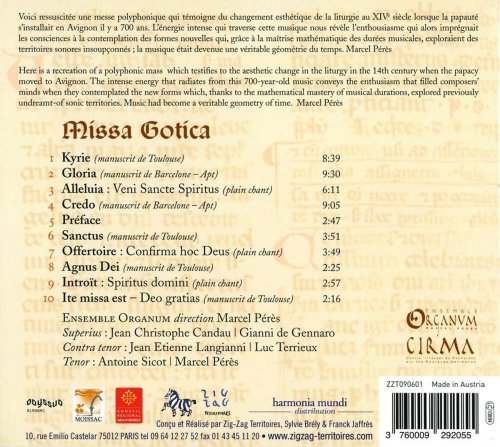
![Rahsaan Roland Kirk - Now Please Don't You Cry, Beautiful Edith (2025 Remaster) (2026) [Hi-Res] Rahsaan Roland Kirk - Now Please Don't You Cry, Beautiful Edith (2025 Remaster) (2026) [Hi-Res]](https://www.dibpic.com/uploads/posts/2026-01/1769782162_cover.jpg)
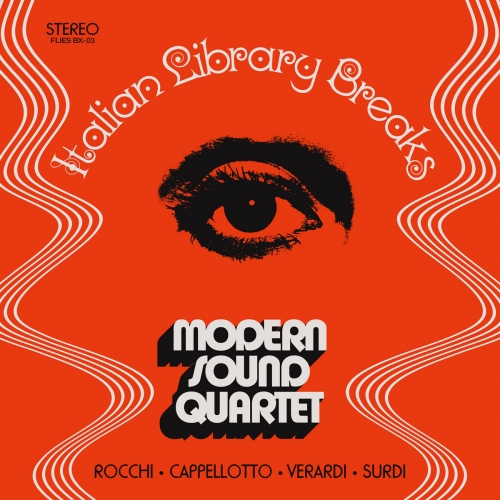
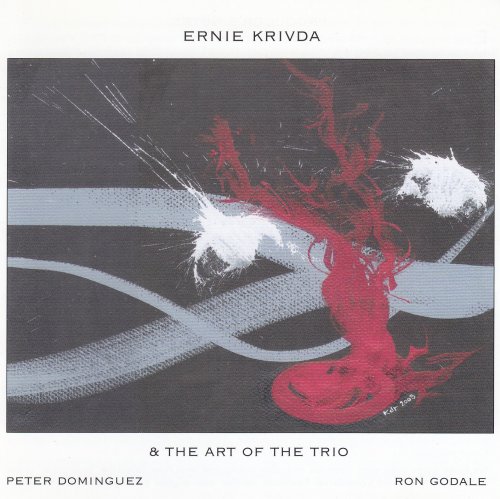
![Compro Oro - Lamellomania (2026) [Hi-Res] Compro Oro - Lamellomania (2026) [Hi-Res]](https://img.israbox.com/img/2026-01/29/z9k9v7p2kvdnm71ct3xbsyljw.jpg)
![Ian Simmonds - All That's Left (2019) [Hi-Res] Ian Simmonds - All That's Left (2019) [Hi-Res]](https://www.dibpic.com/uploads/posts/2019-03/1554007281_folder.jpg)

